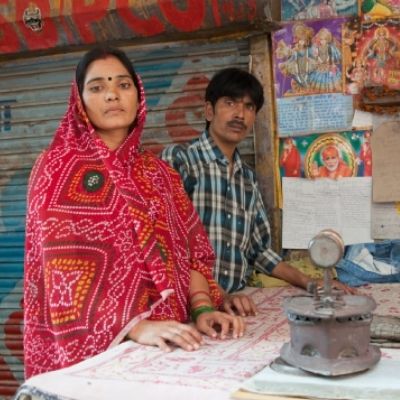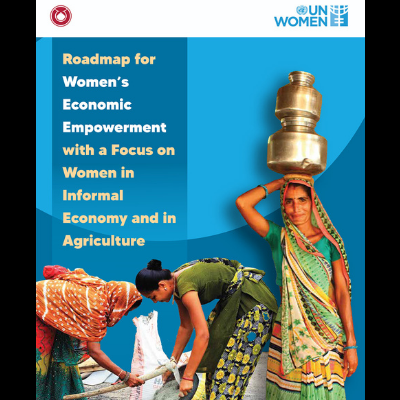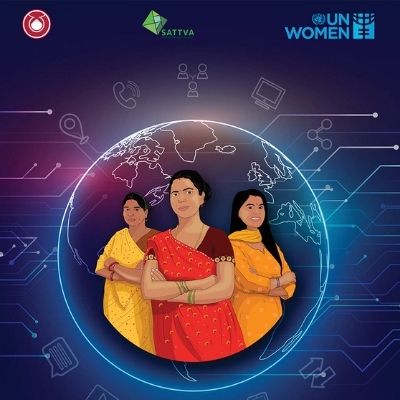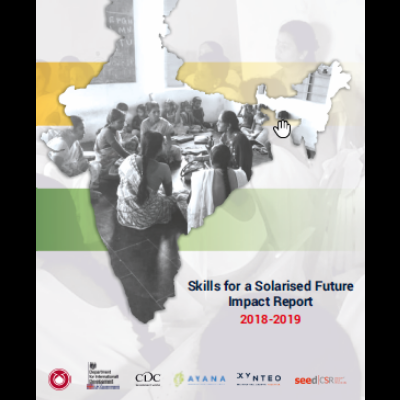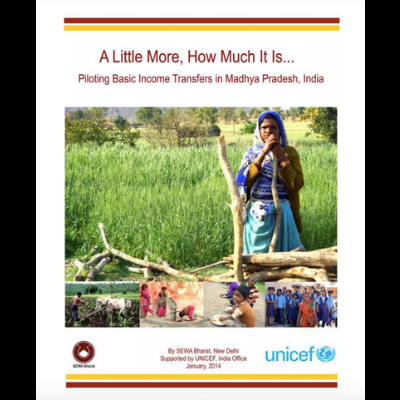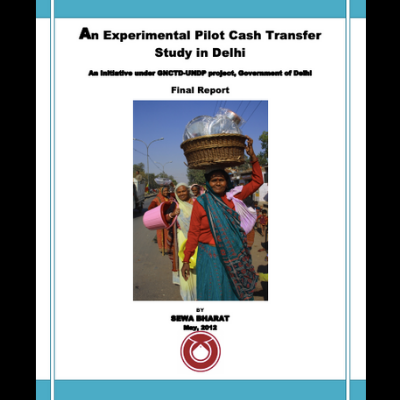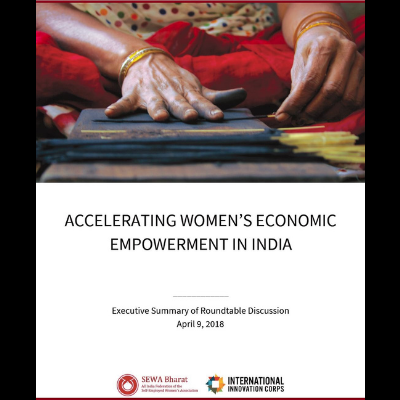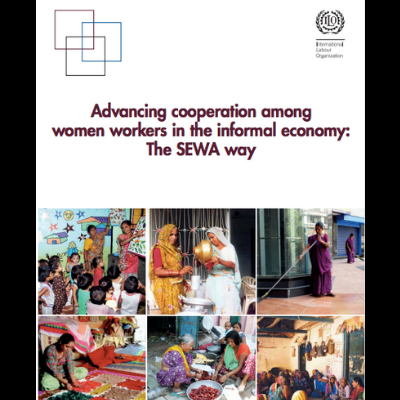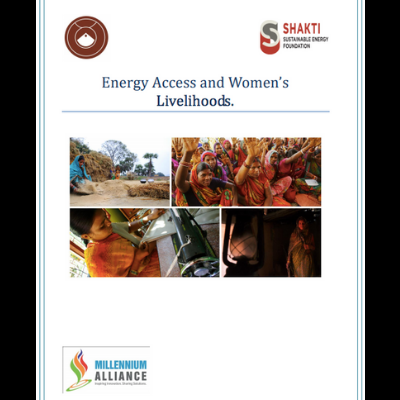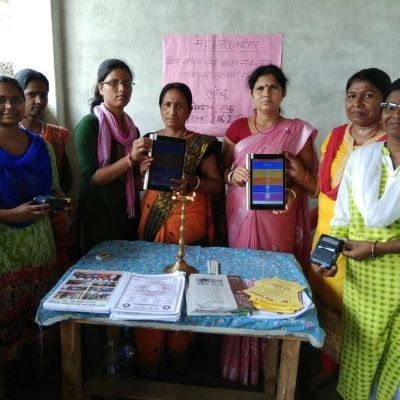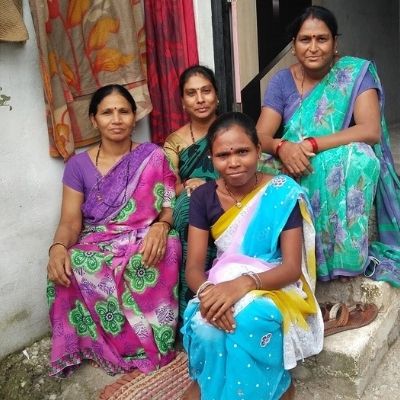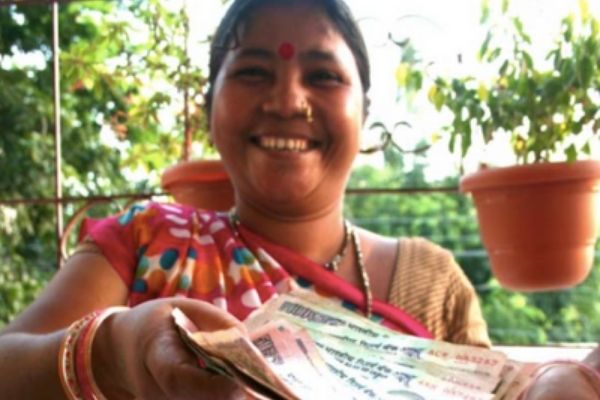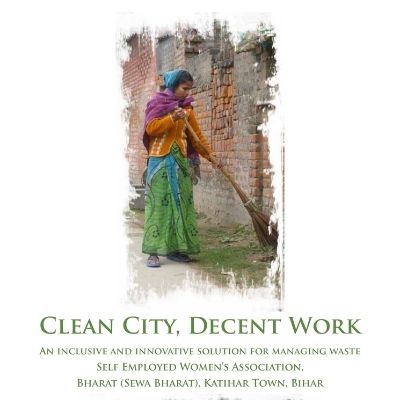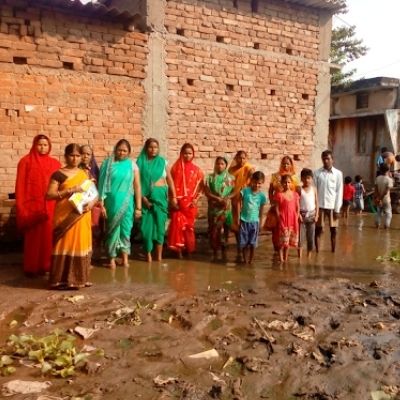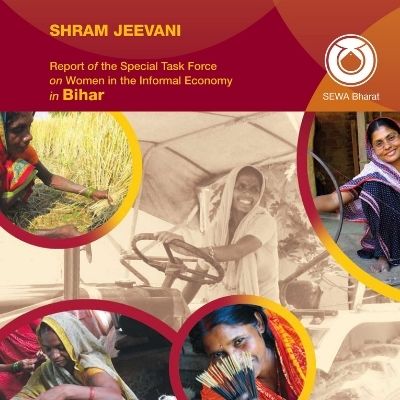SEWA Bharat in Publications
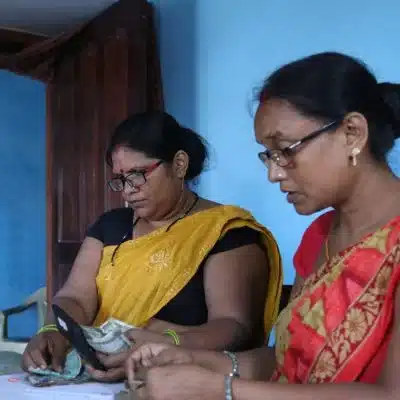
Issue Brief 6: Climate Change and the Financial Resilience of Informal Economy Women Workers
For women in the informal economy, extreme heat, crop losses and income instability are influencing when they borrow, what they spend on and how they repay. This issue brief explores how SEWA members are navigating loans, asset sales, delayed repayments and shifting consumption patterns in response to climate pressures. It also highlights how SEWA’s cooperatives are adapting with more flexible, climate-responsive financial tools to meet women’s evolving needs.
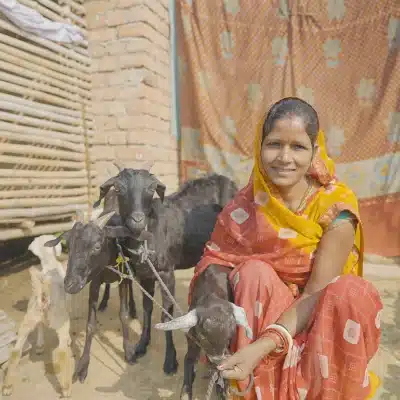
Issue Brief 5: Impacts and Resilience Strategies for Rural Women in India Against Climate Change
The issue brief examines how climate change is intensifying livelihood insecurity for rural women in India, particularly those working in agriculture, animal husbandry and forest-based work. Despite challenges, women are adapting through income diversification, collective livelihoods, sustainable practices and community-led action. The brief underscores the need for stronger policy and programmatic support to build climate resilience and secure dignified livelihoods for women in rural areas.

Issue Brief 4: Navigating Climate Change as Urban Informal Women Workers
Climate change is worsening heat, flooding, pollution, and water scarcity in Indian cities, disproportionately affecting urban informal economy women workers. These impacts threaten their health, livelihoods, housing, and food security, while increasing unpaid care burdens. Despite limited support, women adapt through livelihood diversification and low-carbon work, highlighting the need for climate-resilient infrastructure and worker-centred policies.

Invisible Hands, Unheard Voices: Stories of Home-Based Women Workers in India
This compilation of case stories highlights the lives of home-based women workers in Delhi and Jaipur, whose homes double as low-paid, unsafe workplaces supplying local materials to global markets. It sheds light on ILO Convention 190 to show how their exploitation and harassment are forms of violence in the “world of work,” while also highlighting SEWA’s role in mobilsing them to claim better wages, safety and legal recognition as workers.

Issue Brief 3: Empowering India’s Informal Economy Women Workers for Climate Change Adaptation and Policy Solutions
This issue brief describes how women in the informal economy are adapting to unpredictable weather, heat and migration pressures through community cooperation, resilient crops and alternative livelihoods. The brief calls for inclusive climate action that centres informal economy women workers through stronger social protection, recognition of their labour and access to climate-smart livelihoods.
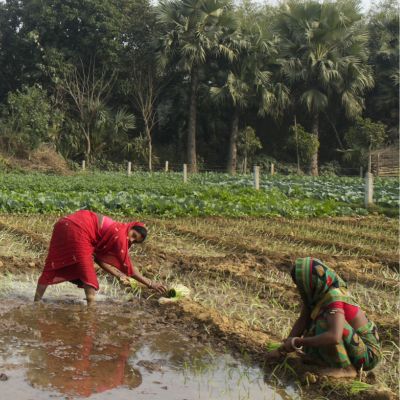
Issue Brief 2: Addressing the Impact of Extreme Heat on Informal Economy Women Workers in India
This issue brief examines how extreme heat, worsened by climate change, severely impacts informal economy women workers in India, reducing their income, health and productivity. It calls for climate-resilient infrastructure, awareness programmes and financial protection measures to strengthen women’s resilience.
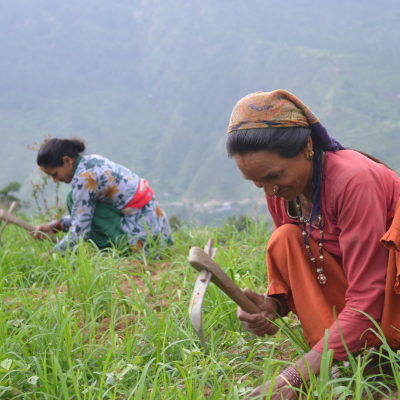
Issue Brief 1: Securing a Just Transition for Informal Economy Women in India’s Green Economy
This issue brief explores the vital role of informal economy women workers in India’s green transition. Drawing on insights from over 1,100 SEWA members, it highlights their contributions to climate resilience and calls for inclusive policies and support to ensure a just and equitable shift towards sustainability.
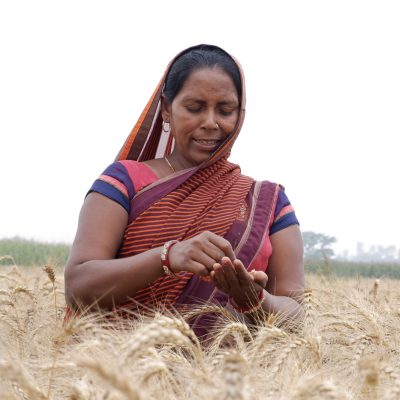
Building Climate Resilience of Small Cities in Bihar: Scoping Study Report
The scoping study by SEWA Bharat in Bihar examines how climate change impacts women informal workers in urban settlements. It identifies the most climate-vulnerable districts and assesses the capacity of Urban Local Bodies to address climate risks, aiming to strengthen partnerships for climate-resilient planning and governance.
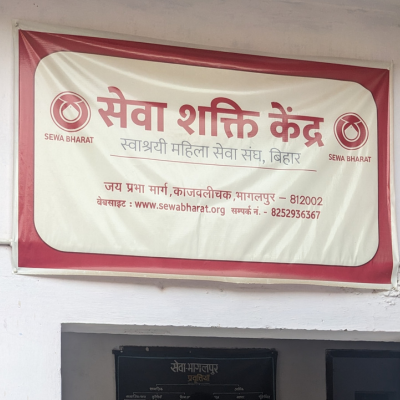
Digitising SEWA Shakti Kendras (SSKs) through Google My Business: A Journey Towards A More Connected Tomorrow
Recognising the necessity of a digital presence in today’s world, SEWA Bharat, along with Digital for Nonprofits (D4NP) embarked on a digitisation initiative to position SSKs as digital nodal points, bridging the gap between vulnerable communities and vital resources. This report encapsulates the journey of SEWA Bharat’s digitisation initiative for its SSKs.
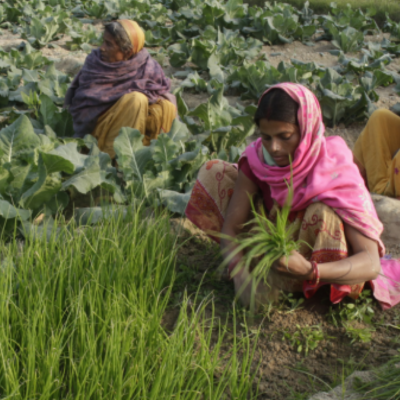
Informal Economy Women Workers On The Frontline Of The Climate Crisis (Full Report)
SEWA Bharat has collaborated with Social Development Direct to build evidence on how climate change is impacting informal economy women workers in India and how they are responding. The aim of the study is also to better understand how SEWA Bharat and external organisations can support informal economy women workers to bolster their agency, as we seek pathways towards a just transition to a green economy.

SEWA Bharat Factsheet August 2024
SEWA Bharat, in partnership with USAID, has made significant strides in empowering women by nurturing entrepreneurial aspirations and supporting their growth journeys. Recognizing that quality childcare is essential for unlocking the full potential of women’s labor force participation, this project focuses on providing quality childcare support to women in the informal economy, with assistance from USAID. This factsheet outlines the key aspects of our initiative, which is paving the way for sustainable economic empowerment of women.
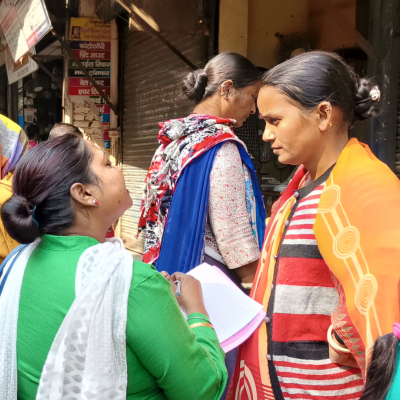
Brief on Financial Inclusion: Survey in 5 States
This factsheet highlights the findings from 5 states, Delhi, Gujarat, Madhya Pradesh, Uttarakhand and Punjab, in terms of financial inclusion for informal women workers. It also sheds light on the major sources of income for these women, their borrowings and access to smartphones.
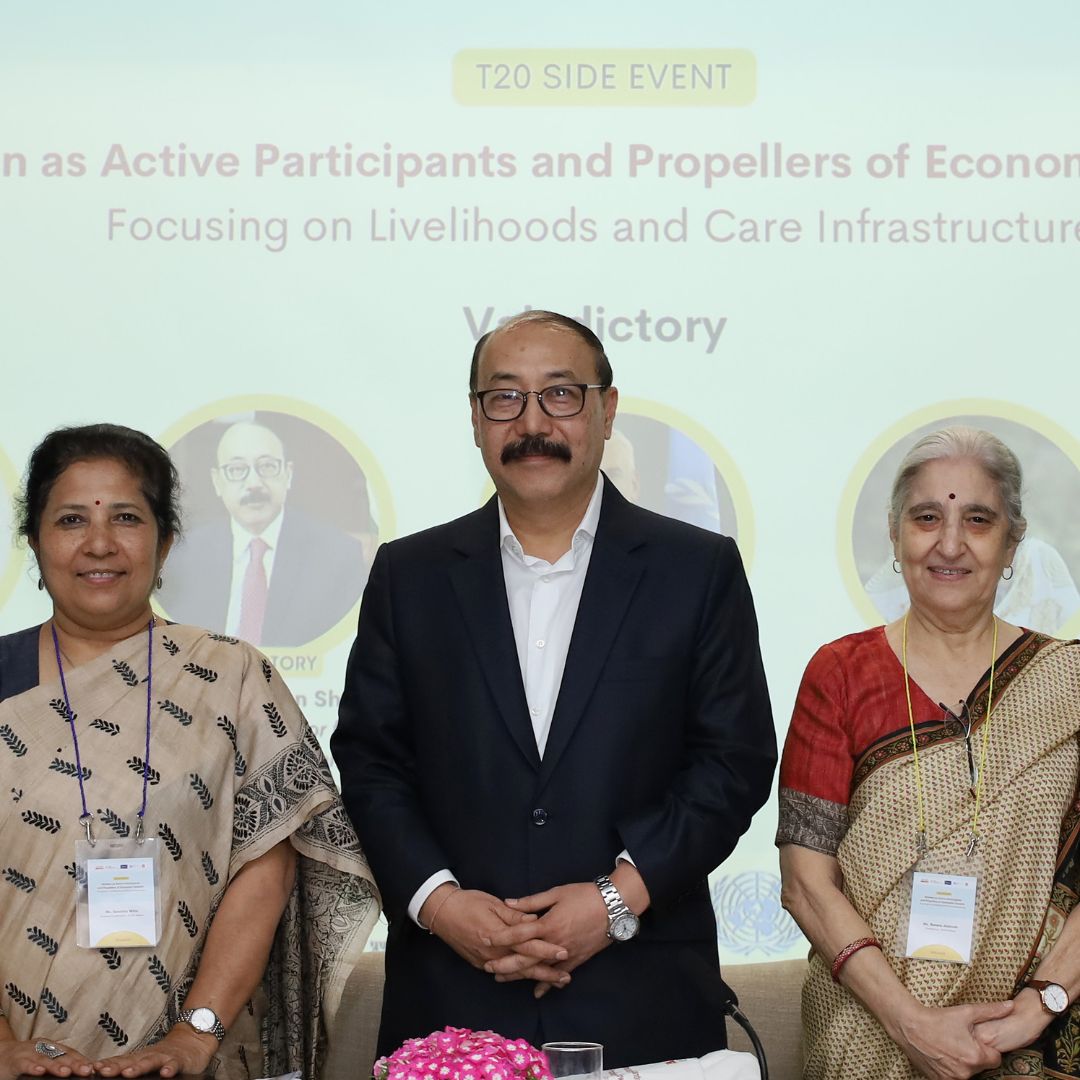
Recommendations from T20 Side Event
On 22nd March, 2023, SEWA Bharat held a T20 Side Event titled ‘Women as Active Participants and Propellers of Economic Growth – Focusing on Livelihoods and Care Infrastructure.’ The recommendations from this event were presented to the Chief Coordinator of G20, Mr. Harsh Vardhan Shringla. The purpose of the document is to provide suggestions on ways to increase women’s participation in the economy, ultimately translating into actionable points for the acceleration of gender-sensitive SDGs as part of T20.

Home-based Workers In Delhi – Combating Invisibility and Recognizing Contributions
In Delhi, the capital of India, an estimated 7 per cent of all workers, women and men, are home-based workers. However, activists and civil society organizations estimate that this is likely to be an under-representation of the actual figures.


